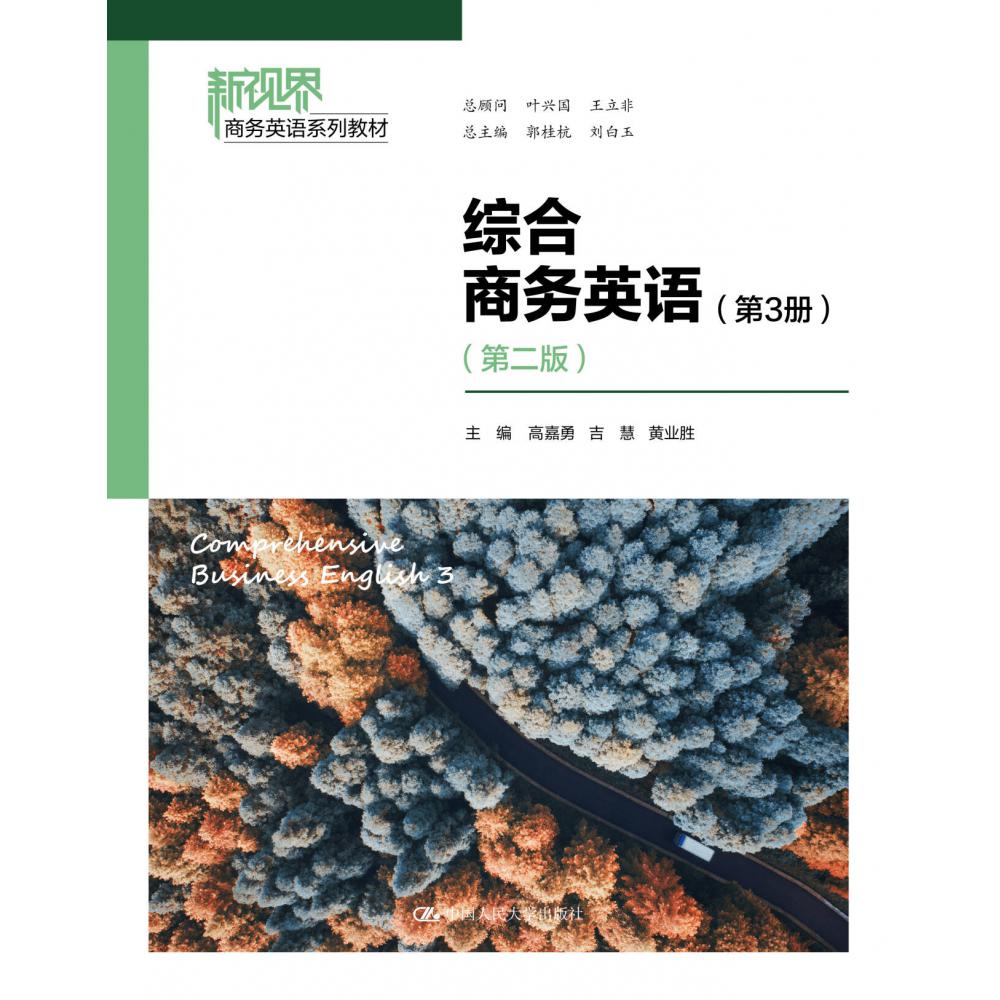
出版社: 中国人民大学
原售价: 48.00
折扣价: 37.50
折扣购买: 综合商务英语(第3册)(第二版)(新视界商务英语系列教材)
ISBN: 9787300325248

高嘉勇,教授,博士、博士后、天津市市级教学名师,天津外国语大学英语学院副院长,国家一流专业(商务英语)带头人,天津市市级教学团队(商务英语)带头人,兼任中国对外贸易经济合作企业协会商务英语专业工作委员会副会长、中国国际贸易学会国际商务英语研究委员会常务理事。
Unit 1 International Organization
Text A Understanding the WTO
Lead-in
1. What is your understanding of World Trade Organization?
2. How does the WTO work?
3. What do you know about Uruguay Round?
The World Trade Organization, commonly known as the WTO, is an international platform where membered countries negotiate and arbitrate trade agreements. Founded in 1995, the primary purpose of this organization is to assist its 164 members in protecting and managing their import and export businesses, along with helping producers of goods and services thrive on the global scale. But the WTO is not only about liberalizing trade, as in some circumstances, its rules have supported trade barriers to protect customers, local workers, and communities from being exploited by major international companies, as well as to prevent the spread of diseases and environment protection.
WTO agreements are lengthy and complex due to the legal language covering a wide range of activities, such as agriculture, textiles and clothing, banking, telecommunications, government purchases, industrial standards and product safety, food sanitationregulations, intellectual property, and much more. But a number of simple, fundamental principles run throughout all of these documents. These principles are the foundation of the multilateral trading system.
A. Trade without Discrimination
1. Most-Favored-Nation (MFN)
Treating others equally under the WTO agreements, countries shall not discriminate between their trading partners. If a country grants another nation with special favors, such as lowering custom duty rates for one of their products, the offering country has to do the same for all other WTO members. This principle, known as the most-favored-nation (MFN) treatment, is pivotal for all participants involved in govern trade properly. Appearing as the first article of the General Agreement on Tariffs and Trade (GATT), MFN is also a priority in the General Agreement on Trade in Services (GATS) and the Agreement on Trade Related Aspects of Intellectual Property Rights (TRIPS) . Together, these three agreements cover the main areas of trade handled by the WTO.
There are, however, some scenarios where the purpose of implementing the most favored-nation policy are not upheld. For example, countries can set up a free trade agreement that applies only to goods traded within WTO members — discriminating against goods from outside. Or they can give developing countries special access to their markets. Or a country can raise barriers against products that are considered to be traded unfairly from specific countries. Moreover, some countries discriminate in services, which are allowed but in limited circumstances. In general, MFN means that every time a country lowers a trade barrier or opens up a market, it has to do so for the same goods or services for all its trading partners — whether rich or poor, weak or strong.
2. National Treatment: Treating Foreigners and Locals Equally
Imported and locally produced goods should be treated equally after the foreign goods have entered the market. The same should apply to foreign and domestic services, and to foreign and local trademarks, copyrights and patents. This principle of “national treatment” (giving others the same treatment as one’s own nationals) is also found in WTO agreements.
National treatment only applies when a product, service or item of intellectual property has entered the market. Therefore, charging customs duty on an import is not a violation of national treatment even if locally-produced products are not charged an equivalent tax.